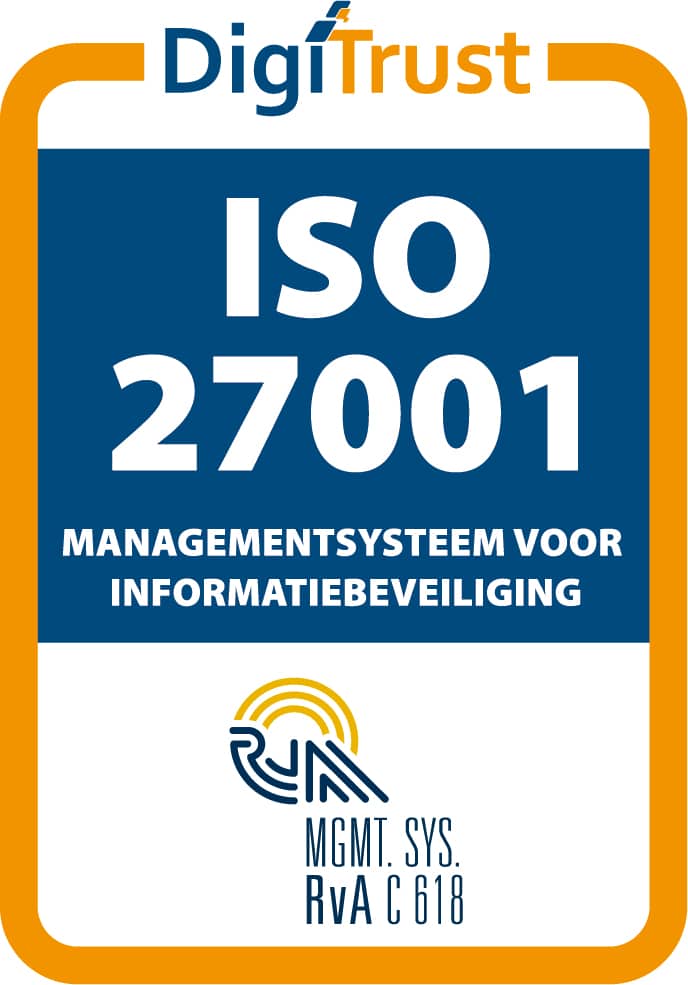Education
Many opportunities, benefits and savings within education, thanks to electronic signature
With digital signatures in education, educational institutions, students, parents and placement companies enter into various agreements, such as an Education Agreement or a Practice Agreement, at the start of a course.

Students are not directly involved in signing other agreements, such as employment contracts and tenders. The signing process of such documents is often time-consuming, which indirectly results in significant loss of money that cannot be spent on education.
Implementing digital signatures in education can provide significant savings in money and time and has a major impact on process control. It allows an educational institution to obtain real-time information on the location and status of agreements to be signed. This provides control over deadlines and associated funding. Some educational institutions have calculated that an estimated 5 euros per document can be saved.
Signing with iDIN in education
For years, the Ministry of Education has emphasized the need for a high level of assurance of the signer's identity when digitally signing agreements with students (specifically STORK level 3). Previously, it was advised that educational institutions performed authentication via DigiD when signing electronically, corresponding to STORK level 2.
However, the use of DigiD for authentication poses a challenge with minors because it may inadvertently reveal the parent/guardian's BSN number to educational institutions.
With iDIN, both problems are overcome and therefore nothing seems to stand in the way of signing documents in education anymore. iDIN meets the requirements of STORK level 3, requires no storage of BSN and does not require a difficult and costly DigiD audit process.
Identify with Yivi
Yivi offers a privacy-friendly solution for logging in. When users log in, they reveal some relevant attributes through a Yivi app on their own cell phone, such as their age (e.g., over 16) or student status. Yivi safeguards privacy in that visitors reveal only the information that they are students, with no further details.
Through the Yivi app, it is also possible to request additional information, such as the visitor's role (student or employee) and the name of the institution (university or college). This allows special access, for example, only to students and/or employees of a specific institution.
In addition, the Yivi app allows you to create digital signatures, also identifying yourself as a signer with personal attributes.
Choose the right platform
When educational institutions consider the move to electronic signing, it is crucial to look beyond current challenges. Often one particular document is the trigger for this switch, but a broader look may reveal that multiple document types are appropriate. When choosing the signing platform, it is important to consider this diversity of documents.
Choosing the right platform is critical because of the diversity of documents to be signed in education. This should take into account the ability to sign both advanced and qualified (in a single document), as well as the authentication tools needed such as YIVI, and potential changes in legislation.
In addition to agreements involving students, educational institutions may also want to electronically sign other documents. An example is the employment contract, which since July 1, 2016, must be signed by the employer by law with a qualified electronic signature. This advanced signing may include, for example, authentication via YIVI.
In addition, the platform must be able to respond quickly to changes in legislation and enforcement. Since July 1, 2016, it has been mandatory for employers to sign qualified. This will lead to stricter compliance monitoring by agencies such as the Telecom Agency, auditors or other monitoring bodies. Given the financial implications of accurate financial records, Zynyo recommends that educational institutions have the responsible educational directors sign with their own certificate. The platform should support this qualified electronic signature.
Digital signatures in education
Zynyo provides customized electronic signing solutions for educational institutions. This enables them to sign at the highest confidence level with their own certificate. Students, parents and internship companies can also sign at confidence level (Stork level) 3. Zynyo promises high-quality services at low cost and fully complies with applicable laws and regulations.
Through Zynyo, you can access various authentication tools, including YIVI, for various signing processes with the desired level of reliability. Zynyo uses a Dutch PKI Overheidscertificaat for its signing services and recommends that educational institutions do the same, in line with the 'handreiking voor overheidsdiensten'. This ensures compliance with European legislation for the placement of qualified and advanced electronic signatures.
So choose an electronic signing platform that supports advanced and qualified signing, offers YIVI and can respond quickly to regulatory changes.
5 reasons why Zynyo
Zynyo Signing Service Provider offers the following benefits:
✓ Advanced and qualified signing on 1 document
Compliant with current laws and international agreements
Personal and organizational PKI Government Certificates
✓ Cost savings and maximum process control
✓ Wide variety of authentication means, including iDIN
